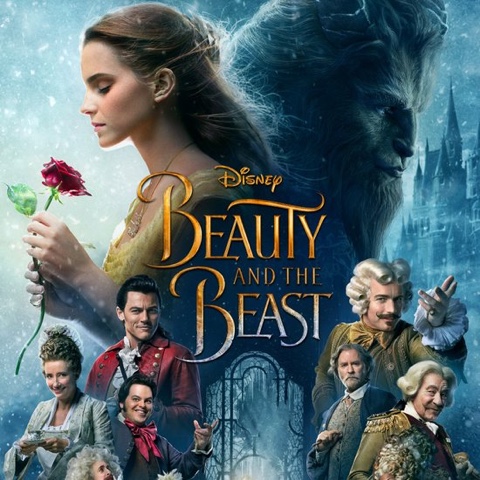Beauty and the Beast: King of the Wood
She asked for a rose. Her father reaches out to pluck one. Suddenly, a Beast appears, furious, accusing him of theft. The penalty is death. Or the surrender of his daughter.
But why such a harsh penalty for plucking a rose? Much has been said - or invented - on the possible meaning of the rose. When the last petal falls, the Beast's fate is sealed eternally. It is the first thing he has learned to love. It symbolises virginity; the plucking of the rose mirrors the deflowering of the daughter; the aristocratic Beast is excercising his droit du seigneur over Beauty, the merchant's child.
But why should the plucking of a flower carry such a heavy penalty? And why does the same motif occur in other fairy tales? For example, Rapunzel, in which the father must sacrifice his child as payment for picking herbs from the Witch's garden.
One answer may lie in ancient mythology. Most ancient polytheistic religions have sacred groves, where it is forbidden to break the branches or pick the flowers, for fear of angering the deity that lives there.
One sacred grove myth that seems of particular relevance when considering Beauty and the Beast is that of the Rex Nemorensis, the King of the Grove or King of the Wood, made famous by James George Fraser in his book of comparative mythology, The Golden Bough.
The story goes that this King of the Wood or Grove was a priest of the goddess Diana at Lake Nemi. He would arrive at the wood a runaway slave or other fugitive, and break a golden bough from the sacred grove. At this signal, the reigning priest would appear and challenge him to single combat. He would kill the priest and take his place in the grove, until another came to challenge him.
This legend prefigures much that happens in medieval romance. It also recalls the fate of Lascelles in Jonathan Strange and Mr Norrell, when he becomes champion of the Castle of the Plucked Heart and Eye.
It also sheds light on one of the more mysterious aspects of Jean Cocteau's 1946 La Belle et la Bête, namely the presence of a forbidden Pavillion of Diana in the grounds of the Beast's castle, to be unlocked with a golden key. When Avenant (the presecurser to Gaston in the Disney versions) breaks into the Pavillion to steal the treasure, a statue of Diana comes to life and shoots him with her arrow. At the very moment when the Beast is transforming into a prince, Avenant transforms into an identical Beast. (The fact that both characters are played by Jean Marais makes this especially potent).
Another myth about Diana is that she transformed Acteon into a stag as punishment for watching her bathing naked. He was chased by his own hunting hounds and torn to pieces.
This is referenced in the 2014 La Belle et la Bête. In this film, the Prince is in love with a Princess, who promises him a son if he will stop hunting an elusive golden deer. The Prince breaks his promise and kills the deer with a golden arrow. While dying, the deer transforms into the Princess, who reveals that she had been a forest nymph all along, allowed to take human form in order to experience love. Her father, the god of the forest, punishes the Prince by transforming him into the Beast, the dogs into small creatures named Tadommes, and his friends into statues. Towards the end of the film, the Beast himself is killed with the golden arrow, before being revived in a healing well.
So, going back to our original question, what new light does this shed on the significance of the rose? We could say that the Enchantress in the 2017 and 1991 Beauty and the Beasts equates in some way with the Diana of the Wood. In the 2017 version, she is depicted at one stage as a wise woman, living in the forest. If the selfish Prince had taken the rose she offered, he would have willingly become her champion. Instead, she transforms him into a beast, as Diana did to Acteon - a beast that will be hunted to the death. He becomes an unwilling King of the Wood, imprisoned in his magical castle as Diana's priest was in the grove. Beauty/Belle's father enters the castle as a lost soul, like the runaway slave or fugitive. The plucking of the rose could signify the arrival of a new challenger, a new prisoner to take the Beast's place. But instead an exchange is made. A daughter. And instead of chaste Diana, we move into the realm of a new mythology, that of Cupid and Psyche.
But that's another story.






Comments
Post a Comment